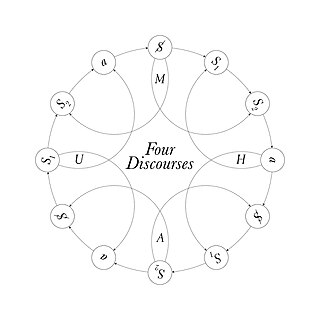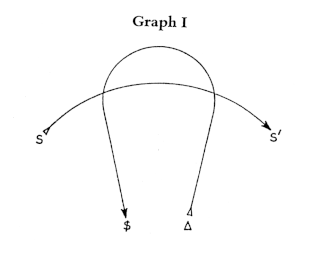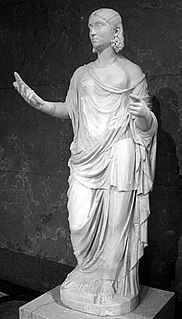 W
WJames Brusseau is a philosopher specializing in contemporary Continental philosophy, history of philosophy and ethics. In 1994 Brusseau joined the faculty of Philosophy and Letters at the Mexican National University in Mexico City teaching graduate courses in philosophy and comparative literature. He has also taught in Europe and the California State University. Currently he teaches at Pace University in New York City. Brusseau took a Ph.D. in Philosophy under the direction of Alphonso Lingis He is currently a professor at Pace University in New York City. He is married to a Spaniard and has two children.
 W
WContinental philosophy is a set of 19th- and 20th-century philosophical traditions from mainland Europe. This sense of the term originated among English-speaking philosophers in the second half of the 20th century, who used it to refer to a range of thinkers and traditions outside the analytic movement. Continental philosophy includes German idealism, phenomenology, existentialism, hermeneutics, structuralism, post-structuralism, deconstruction, French feminism, psychoanalytic theory, and the critical theory of the Frankfurt School as well as branches of Freudian, Hegelian and Western Marxist views.
 W
WIn sociology, field theory examines how individuals construct social fields, and how they are affected by such fields. Social fields are environments in which competition between individuals and between groups takes place, such as markets, academic disciplines, musical genres, etc.
 W
WForeclosure is the English translation of a term that the French psychoanalyst Jacques Lacan introduced into psychoanalysis to identify a specific psychical cause for psychosis.
 W
WFour discourses is a concept developed by French psychoanalyst Jacques Lacan. He argued that there were four fundamental types of discourse. He defined four discourses, which he called Master, University, Hysteric and Analyst, and suggested that these relate dynamically to one another.
 W
WIn critical theory, sociology, and psychoanalysis, the gaze, in the philosophical and figurative sense, is an individual's awareness and perception of other individuals, other groups, or oneself. The concept and the social applications of the gaze have been defined and explained by existentialist and phenomenologist philosophers. Jean-Paul Sartre described the gaze in Being and Nothingness (1943). Michel Foucault, in Discipline and Punish: The Birth of the Prison (1975), developed the concept of the gaze to illustrate the dynamics of socio-political power relations and the social dynamics of society's mechanisms of discipline. Jacques Derrida, in The Animal that Therefore I Am (1997), elaborated upon the inter-species relations that exist among human beings and other animals, which are established by way of the gaze.
 W
WThe graph of desire is a conceptual tool from the psychoanalytic theory of Jacques Lacan.
 W
WIn sociology, habitus comprises socially ingrained habits, skills and dispositions. It is the way that individuals perceive the social world around them and react to it. These dispositions are usually shared by people with similar backgrounds and opportunities. Thus, the habitus represents the way group culture and personal history shape the body and the mind; as a result, it shapes present social actions of an individual.
 W
WThe Imaginary is one of three terms in the psychoanalytic perspective of Jacques Lacan, along with the Symbolic and the Real. Each of the three terms emerged gradually over time, undergoing an evolution in Lacan's own development of thought. "Of these three terms, the 'imaginary' was the first to appear, well before the Rome Report of 1953…[when the] notion of the 'symbolic' came to the forefront." Indeed, looking back at his intellectual development from the vantage point of the 1970s, Lacan epitomised it as follows:"I began with the Imaginary, I then had to chew on the story of the Symbolic ... and I finished by putting out for you this famous Real."
 W
WFrom 1952 to 1980 French psychoanalyst and psychiatrist Jacques Lacan gave an annual seminar in Paris. The Books of the Seminar are edited by Jacques-Alain Miller.
 W
WLacanianism is the study of, and development of, the ideas and theories of the dissident French psychoanalyst Jacques Lacan. Beginning as a commentary on the writings of Freud, Lacanianism developed into a new psychoanalytic theory of humankind, and spawned a worldwide movement of its own.
 W
WThe mirror stage is a concept in the psychoanalytic theory of Jacques Lacan. The mirror stage is based on the belief that infants recognize themselves in a mirror (literal) or other symbolic contraption which induces apperception from the age of about six months.
 W
WQueer studies, sexual diversity studies, or LGBT studies is the study of issues relating to sexual orientation and gender identity usually focusing on lesbian, gay, bisexual, transgender, gender dysphoria, asexual, queer, questioning, intersex people and cultures.
 W
WIn postcolonial studies and in critical theory, the term subaltern designates and identifies the colonial populations who are socially, politically, and geographically excluded from the hierarchy of power of an imperial colony and from the metropolitan homeland of an empire. Antonio Gramsci coined the term subaltern to identify the cultural hegemony that excludes and displaces specific people and social groups from the socio-economic institutions of society, in order to deny their agency and voices in colonial politics. The terms subaltern and subaltern studies entered the vocabulary of post-colonial studies through the works of the Subaltern Studies Group of historians who explored the political-actor role of the men and women who constitute the mass population, rather than re-explore the political-actor roles of the social and economic elites in the history of India.
 W
WThealogy views divine matters with feminine perspectives including but not only feminism. Valerie Saiving, Isaac Bonewits (1976) and Naomi Goldenberg (1979) introduced the concept as a neologism in feminist terms. Its use then widened to mean all feminine ideas of the sacred, which Charlotte Caron usefully explained in 1993: "reflection on the divine in feminine or feminist terms". By 1996, when Melissa Raphael published Thealogy and Embodiment, the term was well established.